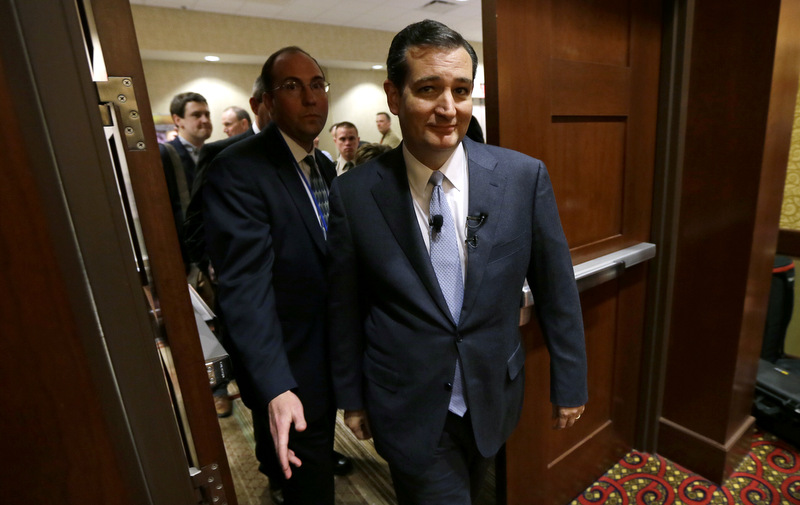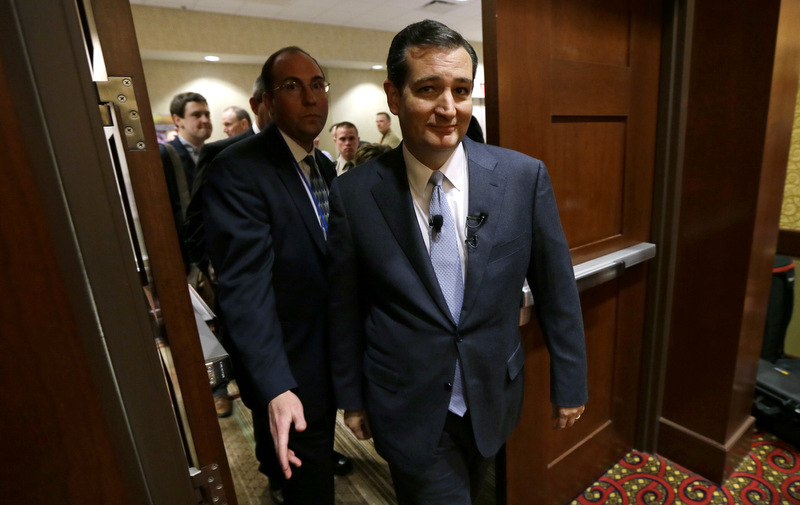
On Monday, the Senate passed a bill that would effectively prevent Iran’s ambassador to the United Nations from entering the United States. The bill, drafted by Sen. Ted Cruz, R-Tex., and passed unanimously, would deny individuals listed on the U.S. State Department’s Known Terrorist List a diplomatic visa or entry privileges to the U.S.
However, under international law, even though the U.N. Headquarters is located in Midtown Manhattan in New York City and the U.S. processes visa requests for the U.N., the U.S., as host nation, cannot deny a U.N. ambassador access to the U.N. Plaza or act in a way that denies the U.N. the ability to do its work uninterrupted.
The Senate and international law
In previous situations in which a known terrorist needed to enter the country to access the U.N., the individual was given a visa limiting his free access to a 25-mile radius of Columbus Circle, the southwestern corner of Central Park. Twenty-five miles is roughly the distance from Central Park to John F. Kennedy International Airport — the nation’s primary international terminal — and would give the diplomat free range of most of metropolitan New York and parts of upper New Jersey, but not much else.
The State Department has used this technique with past Iranian and North Korean diplomats. Last month, it set up a 25-mile limit for Syrian Ambassador to the U.N. Bashar Ja’afari after it was learned that he was travelling across the country in what was described as a “series of propaganda tours.” The State Department automatically implements the requirement that diplomats from certain countries must pre-inform the State Department of their intent to leave the 25-mile boundary.
The White House has indicated that it has raised its concerns over Iran’s appointment of Hamid Abutalebi as U.N. ambassador. It did not offer specifics on how it went about doing that or if the State Department would deny Abutalebi a visa.
Sen. Cruz’s bill represents a rare legislative victory for the freshman senator, who has been accused of grandstanding without much legislative success behind him to back his positions. It also reflects the current state of the sanctions debate in Congress and the tug-of-war between the prevailing push in Congress toward punishing Iran and the reluctance toward giving the White House the time it requested to hammer out a permanent non-proliferation treaty.
This also represents a possible overreach of American authority in the U.N. While international law prohibits the U.S. from banning the Iranian ambassador from attending general sessions, Cruz’s law would make it illegal for “known terrorists” to set foot on American soil, which would be necessary to get to U.N. Plaza.
The bill presents a two-headed problem. First, by denying a duly appointed ambassador access to the U.N., the U.S. is, in effect, both asserting that the nation has the right to approve foreign delegates to the U.N. and that the country’s sovereignty — as host nation — is superior to the U.N., which is, by international law, independent and subordinate to no nation.
Second, it creates a precedence for the U.S. to reject any nation’s representation to the U.N., which grants the U.S. a level of control over both the affairs of the U.N. and the diplomatic missions of sovereign nations. This could exasperate the commonly-held belief that the U.N. exists at the bequest and pleasure of the U.S. government.
Opposing Iran
Cruz’s bill came at roughly the same time a letter arrived at the White House from Sens. Robert Menendez, D-N.J., and Mark Kirk, R-Ill., the authors of the currently-shelved sanctions bill against the Central Bank of Iran. The letter calls on President Barack Obama to “put Iran on notice that United States is prepared to re-instate [sic] these sanctions should Iran attempt to evade our sanctions and violate the terms of the JPA [Joint Plan of Attack].”
The senators were responding to reports that Iran and Russia are brokering a deal that would trade $20 billion in oil at a rate of up to 500,000 barrels a day in exchange for Russian equipment and goods. This trade will be in violation of the relaxed sanctions the U.S. agreed to in order for Iran to participate in nuclear non-proliferation talks. A Russian source has indicated that Moscow is awaiting an agreement on the price of the oil to complete the deal, and an Iranian source has indicated that missiles and assistance with building two nuclear plants in Iran will be included in the trade package.
The eased sanctions permit Iran to export an average of a million barrels of oil per day for six months, ending July 20. However, for the last five months, oil sales have been above the million barrels per day mark, according to Reuters.
“The deal would ease further pressure on Iran’s battered energy sector and at least partially restore Iran’s access to oil customers with Russian help,” said Mark Dubowitz of the Foundation for Defense of Democracies. “If Washington can’t stop this deal, it could serve as a signal to other countries that the United States won’t risk major diplomatic disputes at the expense of the sanctions regime.”
Cruz’s bill was backed by Sen. Chuck Schumer, D-N.Y., the third-highest ranking Democrat in the Senate. Schumer has previously indicated he favored sanctions against Iran.
“It may be a case of strange bedfellows, but I’m glad Sen. Cruz and I were able to work out a bill that would prevent this terrorist from stepping foot on American soil,” Schumer said in a statement. “We ought to close the door on him, and others like him, before he even comes to the United States, and that’s exactly what this bill will do.”
Ghosts of past tragedies
Hamid Abutalebi, a former ambassador to Italy, Belgium and Australia, was selected to replace Iran’s outgoing U.N. ambassador, Mohammad Khazaee, by Iranian President Hassan Rouhani. The Iran mission to the U.N. is the only embassy Iran maintains on American soil and is, therefore, Washington’s only diplomatic link to Tehran. Abutalebi has served in Iran’s foreign ministry since the early 1980s and is believed to be close to Rouhani.
Abutalebi was also, allegedly, a participant in the 1979 Iranian Hostage Crisis. When American embassy staff in Iran were held hostage for 444 days, he was a member of the Muslim Students Followers of the Imam’s Line, the group responsible for the capture. While Abutalebi claims that he did not participate in the hostage-taking — he insists that he was just a translator and negotiator — it is clear that the group’s theocratic position now represents Iran’s political philosophy and that many in the group, possibly including Abutalebi, use their affiliation with the group to secure high government positions.
As the U.S. carries a permanent veto in the Security Council, it is unlikely that the U.N. would have the muscle to force the U.S. to withdraw the legislation. However, the bill threatens to further exasperate U.S. foreign relations, which are currently stressed due to revelations of the extent of the National Security Agency’s electronic spying.
“It’s a disgrace if the USG (U.S. government) accepts Abutalebi’s visa as Iranian Ambassador to the U.N.,” said former hostage Barry Rosen in a statement provided to Reuters by Alan Madison, spokesman for the legal team representing the former hostages in their compensation claims. “It may be a precedent but if the President and the Congress don’t condemn this act by the Islamic Republic, then our captivity and suffering for 444 days at the hands of Iran was for nothing. He can never set foot on American soil.”
As of the writing of this article, no nation has commented on the Cruz bill.


